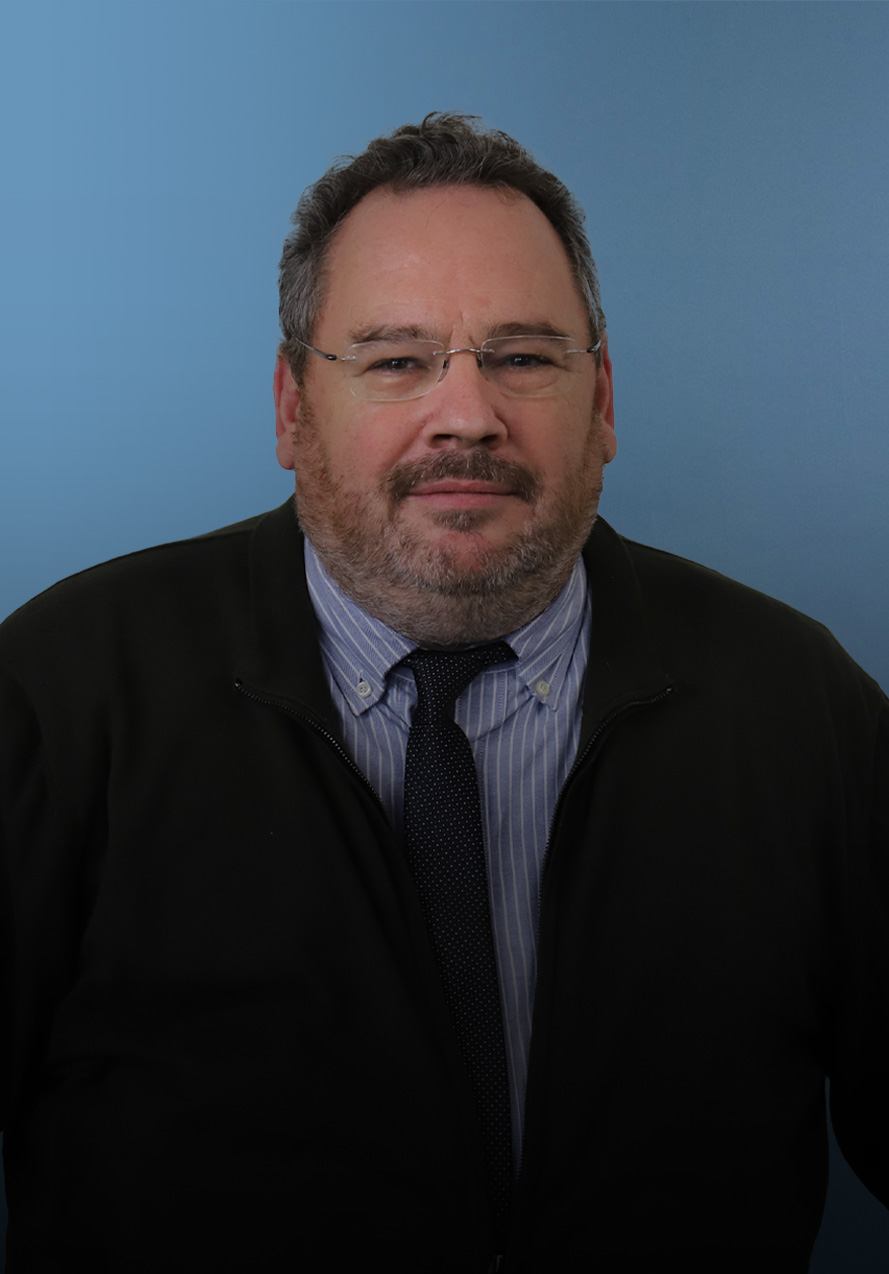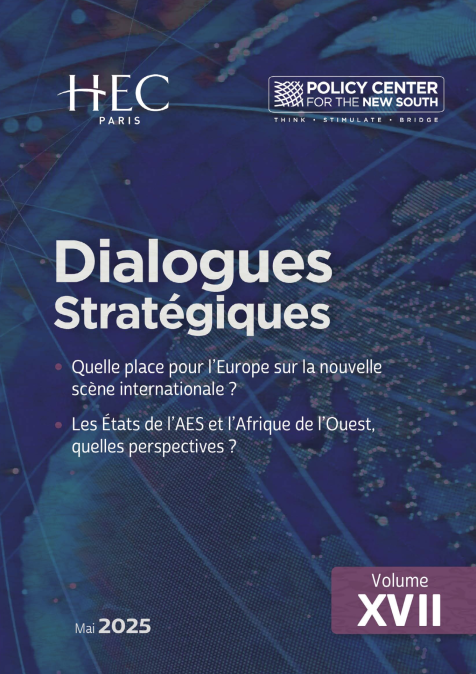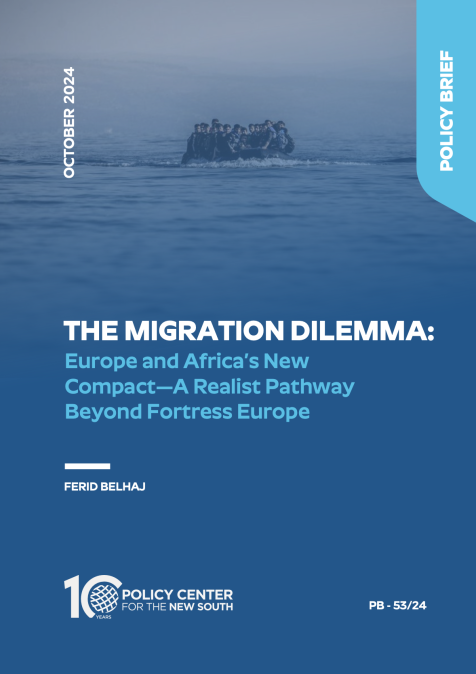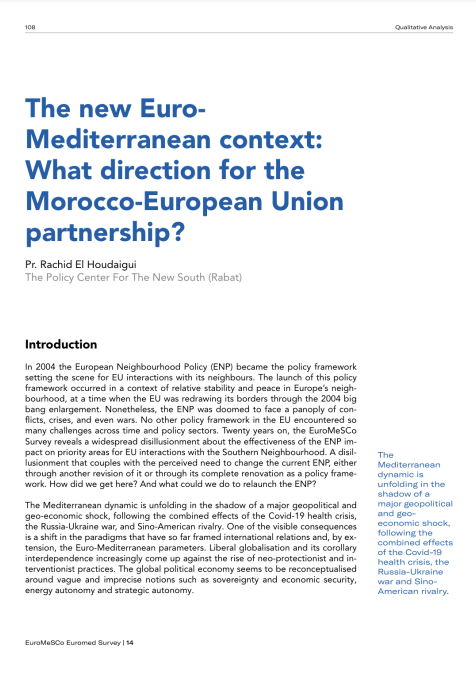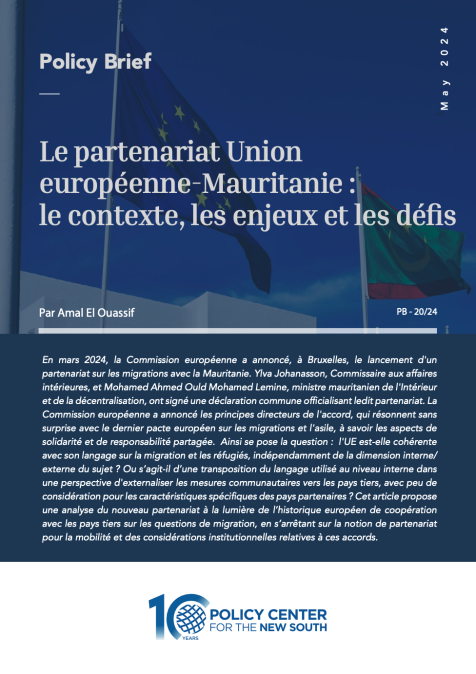The role of North Africa in the geopolitical relations between Europe and Africa
Being at the gate of Europe yet deeply rooted in Africa has given to Northern African countries the role of bridging the two continents. Driven by the law of labour demand and supply in the aftermath of World War II, northern African citizens happened to be among the first Africans to explore voluntary mobility towards Europe. Hence, an international migration culture was born in this part of Africa, before Sub-Saharan citizens followed the same path years later. Therefore, Europe has come to communicate more easily with northern African neighbors, as opposed to the limited/blurry vision on Sub-Saharan African countries. The recent dramatic developments surrounding the migration issue along with the challenges imposed by the current world transformation makes it urgent to have a clear vision on the issue of migration and mobility. An inclusive discussion that would involve Africa in its integrality- (North and Sub-Saharan Africa)- and Europe. In this regard, ambitious northern African countries can offer valuable help in making the divergent visions come closer. The purpose of the joint panel between the Policy Center for the New South and the Konrad Adenauer Stiftung is to shed the light on the role that can be played by Northern African countries in bridging the gap between Europe and Sub-Saharan Africa on the question of migration. Beyond the Neighbors, engaging with the neighbors of the neighbors: is the cooperation level between Europe and Africa sufficient? How can northern African countries bridge the existing gap? A close look at the Moroccan leadership on the matter of migration at the African level. Understanding the constant and the variable in the relationship between Africa and Europe. Northern African countries are no more merely senders of migrants. They are also receiving an increasingly important number of migrants from Sub-Saharan Africa. How to manage the constant aspect of northern African migration towards Europe and include in addition, the more recent sub-Saharan mobility in the equation. What lessons are to be learned from over sixty years of presence of African migrants in Europe? What are the geopolitical perspectives ahead of the EU-Africa Summit?How does the migration issue articulate with other cooperation and partnership dynamics of the European Union with North Africa (European Neighbourhood Policy, Euro-Mediterranean Partnership) and Sub-Saharan Africa (new EU Comprehensive Strategy with Africa)? Agenda 15:00-15:10 Welcoming Remark Bouchra Rahmouni, Director of Research, Partnerships & Event, Policy Center for the New South Thomas Volk, Director, Regional Program Political Dialogue South Mediterranean, Konrad Adenauer Stiftung 15:10-15:15 Presentation of the Panel Moderator Silindile Nanzile Mlilo, PHD Research Fellow & Xenowatch Project Manager, African Centre for Migration and Society, University of Witwatersrand 15:15-15:25 North Africa: A Hub for Migration Hassen Boubakri, President, Tunis Center for Migration and Asylum 15:25-15:35 Bridging the Gap: An Emerging African Strategy on Migration Amal El Ouassif, International Relations Specialist, Policy Center for the New South 15:35-15:45 Migration Mobility Partnerships of the European Union Mohamed Limam, Assistant Professor, University of Sousse 15:45-15:55 What Prospects and Implications for Europe-North Africa Partnerships? What Role for Migration in the Partnerships? Iván Martín, Senior Fellow, Policy Center for the New South 15:55-16:10 Commentary Michaeal Gahler, Member of the European Parliament; Vice-Chair of ACP-EU Joint Parliamentary Assembly, Member of Committee on Foreign Affairs 16:10-16:30 Q&A
